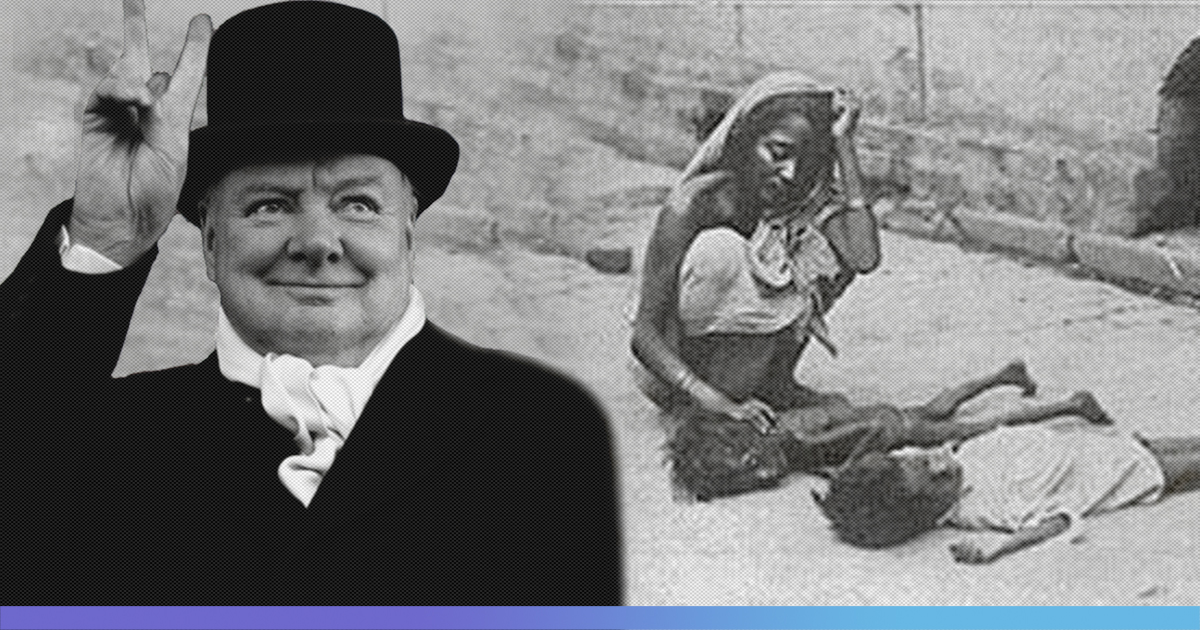
1943 Bengal Famine Due To Winston Churchill's Policies Not Drought, Finds Research
1 April 2019 12:23 PM GMT
The 1943 Bengal famine, which resulted in the death of over three million Indians, was a direct result of then British Prime Minister Winston Churchill’s policies and not drought. A group of Indian and American researchers have found this, which has been published in a journal, Geophysical Research Letters. The Bengal Famine of 1943 has for a long time regarded to have been caused by the British Government’s policies of the time.
What the research states?
The researchers used weather data to simulate the amount of moisture present in the soil during six major Indian famines between 1873 and 1943. The researchers found that the first five famines, i.e 1873-’74, 1876, 1877, 1896-’97, and 1899 were results of drought, not at the heights of the Bengal famine in 1943 when the rain levels were above average.
Vimal Mishra, an associate professor of Indian Institute of Technology, Gandhinagar and one of the paper’s authors said, “There have been no major famines since independence and so we started our research thinking the famines would have been caused by drought due to factors such as lack of irrigation.”
Some of the British policies which have been accused of causing the devastating famine were the distribution of food and vital necessities to the military during the second world war, stopping the import of rice and the reluctance of the British government to declare famine in India. The study states that another factor that contributed to the high mortality rate was the Japanese capture of Burma, which served as a major rice exporter to India.
Mishra told CNN that during the 1873-’74 famine, Bengal lieutenant governor, Richard Temple by importing and distributing food to those in need. However, the British during the 1940s not only criticized Temple’s policies but also dropped them, leading to the famine.
The contention that the British government was responsible for the famine has been reiterated a lot of times in India. In 1981, Nobel Prize-winning economist Amartya Sen said that in order to control the famine, supplies should have been in abundance.
Madhushree Mukherjee in her 2011 book, Churchill’s Secret War that the war was caused due to the export of large amounts of food grains from India. She wrote that between January and July of 1943, 70,000 tons of rice were exported from India. She even wrote that despite Churchill’s War Cabinet being aware of the issue, Prime Minister Churchill was reluctant to take any action.
Pulitzer-prize winning journalist Joseph Lelyveld while reviewing the book for The New York Review of Books wrote, “Probably it’s true that fewer Bengalis would have died had Churchill approved an emergency request from his own officials in India in July 1943 for shipments of 80,000 tons of wheat a month to Bengal for the rest of the year.”
Congress MP Shashi Tharoor in a famous speech at Oxford in 2015 said, “This is a man the British would have us hail as an apostle of freedom and democracy when he has as much blood on his hands as some of the worst genocidal dictators of the 20th century.”
Also Read: Winston Churchill’s Death Anniversary: Why Are We Indians Still Praising A Racist War Criminal?
 All section
All section













